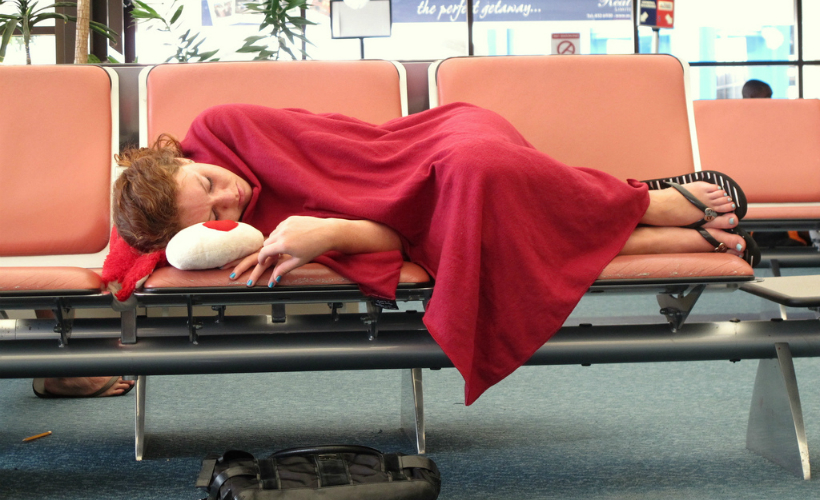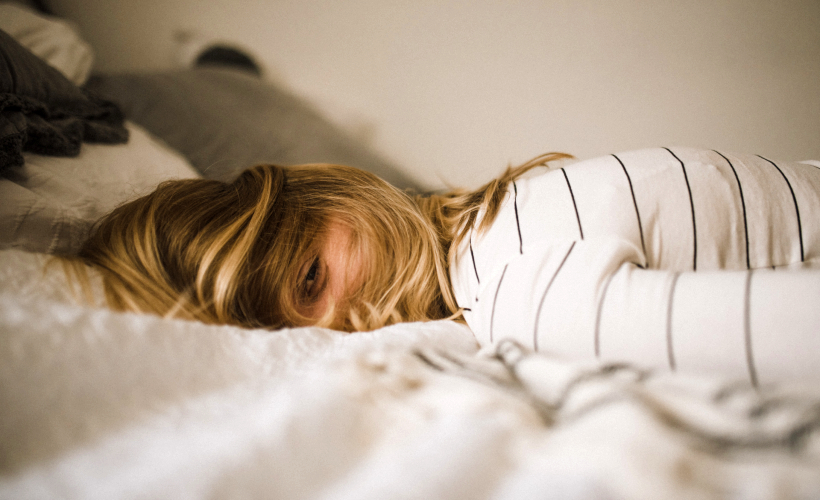
What do a luxurious hotel bed, a sofa in the friend’s house, and an airport bench have in common? Yup. Each of these places is unlikely to offer you peaceful shut-eye, at least for the first couple of nights. Now, the good news is that science has an explanation for that unrestful sleep you often have when away from home, and there are ways to battle this ‘first night effect’.
What is the first night effect?
The science behind the first night effect is pretty simple, actually. Our brain gets very attached to familiar surroundings and starts to perceive them as non-threatening and relaxing. This is why you might start feeling sleepy by just seeing your favourite pillow or smelling the scent of your bedsheets.
When our surroundings change, the brain sends a stress signal that literally tells your body: “This isn’t a familiar place, so it might be dangerous for us to stay here.” So, to be ready in case danger comes, the brain keeps one of the hemispheres more alert and susceptible to the external stimuli. This way, you’ll be able to wake up more easily, but this also results in shallow sleep. Scientists who’ve studied this have found that the left hemisphere – the side that’s associated with more frequent arousals – is usually more vigilant.
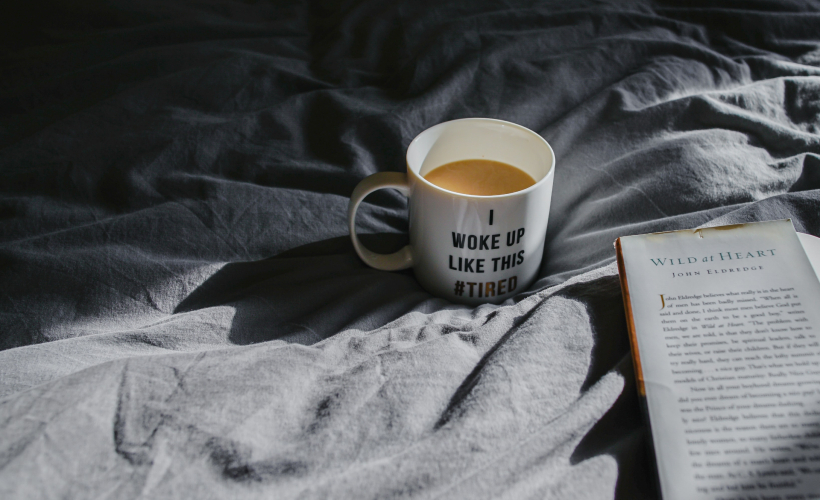
So, essentially, the first night effect is just another survival mechanism from ancient times that helped humans survive. However, the first night effect is an obstacle to restful sleep in this modern (and much safer!) era. A night of shallow sleep can take a toll on your work performance, cognitive abilities, and reaction time.
How to sleep better at a new place
Below are the three main scenarios in which you’re most likely to encounter the first night effect. Here’s what you can do to score some restful sleep in each of them.
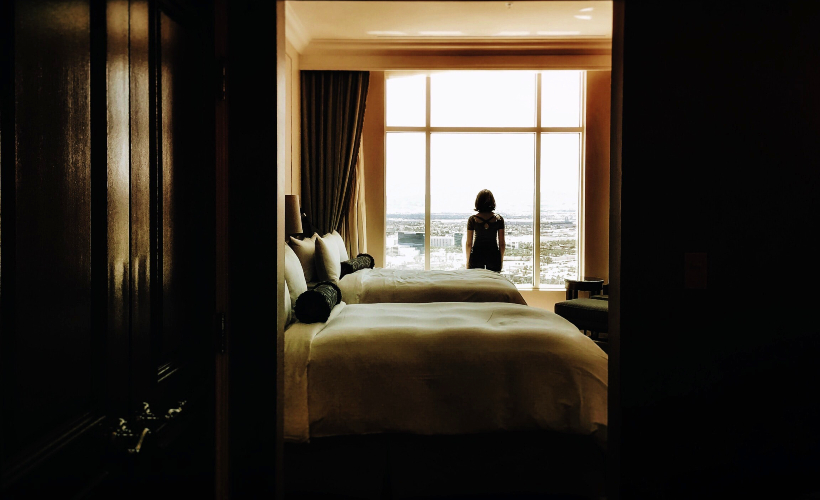
In a hotel room
Let’s begin with the hardest setting. Staying at a hotel far from home can easily trigger worries and delay your shut-eye for a couple of hours. So, first of all, bring something familiar. John Breese, the CEO of Happysleepyhead and a frequent traveller, recommends that you bring a small item that will remind you of home. This can be a pillowcase, pyjamas, or a bottle of hand lotion that you use during your evening routine. Items like these will make the hotel room feel more like your own bedroom, thus helping you feel more relaxed and fall asleep faster.
Before bed, take a hot shower. No matter what season it is, showering in hot water may help you get better sleep. The goal here is to trigger a drop in the body temperature that will launch melatonin production. When you slip under the cool and clean sheets after taking a hot shower your body will lose its heat faster, thereby facilitating sleepiness.
Try breathing exercises. Breathing techniques don’t require you to leave the bed and have incredible relaxing effects. You can try the well-known 4-7-8 method, alternate nostril breathing, or any other technique that feels right for you.
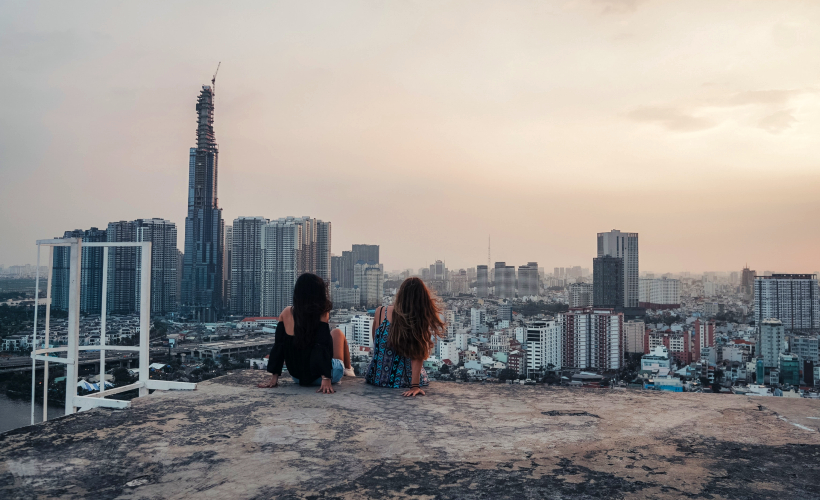
Also, make the most of your trip and go exploring as much as you can. This will help you get tired in a natural way and load your brain with endorphins that can promote relaxation. It’s also good to note that certain foods can help you sleep better, so snack on those when you’re out and about.
At a friend’s house
Staying at a friend’s house may feel less stressful because there’s at least one familiar person around you. But these simple recommendations can help you feel even more comfortable.
Ask for additional accessories. If your friend doesn’t have a guest bed and offered you a sofa instead, don’t hesitate to ask for an extra blanket and a couple of pillows to use as support. Remember that most sofas or couches aren’t really designed for comfortable sleeping and can easily add up to your sleep onset. So, feel free to get as comfy as possible: your spinal health is a top priority.
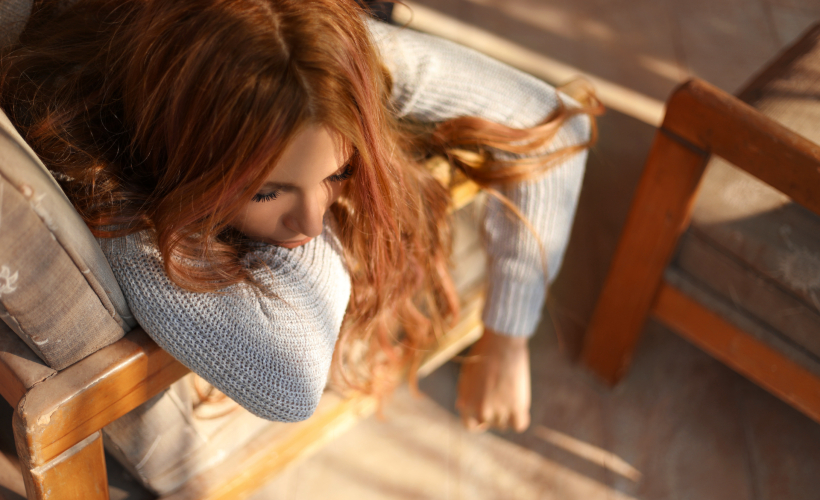
Opt for a recliner. If you have an opportunity to choose between a sofa and a reclining chair, it’s more advisable to choose the latter. Many recliners are adjustable and offer more opportunities to get cosy, which may help you fall asleep faster.
Use ‘colourful’ noises in new surroundings. For example, white noise can overlap with annoying sounds and muffle them, thereby turning your friend’s house into a more sleep-friendly place. Pink noise has a similar effect, which means it can also help you fall asleep more easily. You may find lots of noise samples on YouTube or Spotify.
Finally, here’s something you ought to do regardless of where you are: stick to your usual night routine! Sip some tea, remove your makeup, put on your favourite pyjamas, meditate, listen to relaxing music — anything that you usually do before bedtime to wind down. Also, you can create a more sleep-friendly environment by lowering the bedroom temperature to around 20o C. Use your AC unit (if you have one installed) or just open the windows to let fresh, cooler air in.
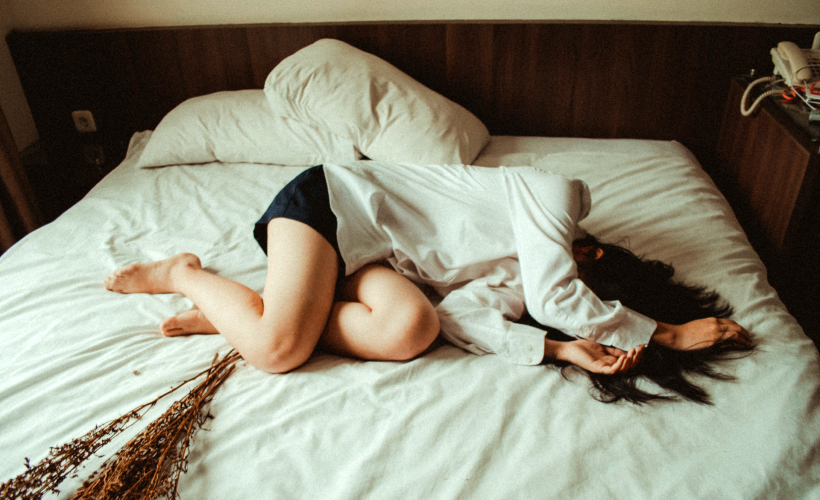
As you can see, combating the first night effect is quite easy. Don’t hesitate to mix and combine all the aforementioned tips. Hopefully, some of them will help you get your deserved portion of a good night’s sleep.

